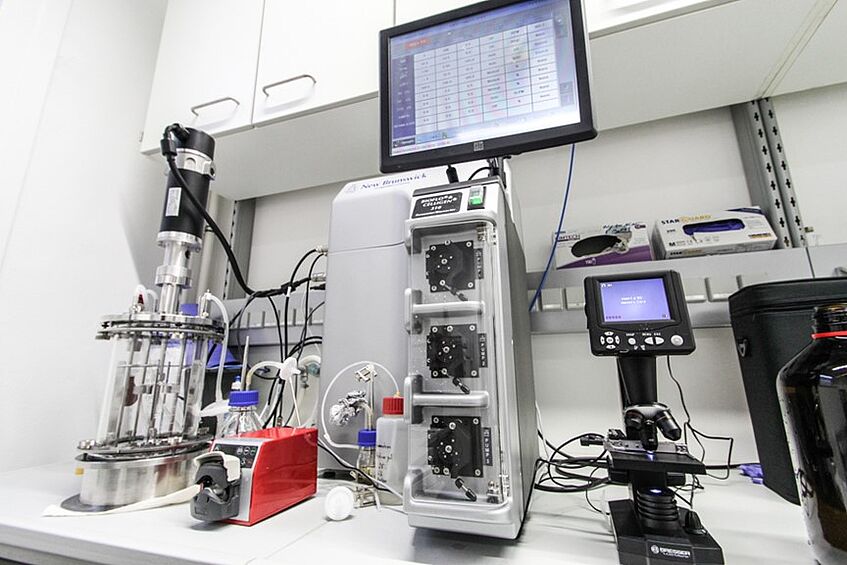Standardization

Analytical diagnostic assays need to be comparable all over the world, calling for suitable standardization strategies. Standardization with metabolite standards is necessary for quantitative analysis by mass spectrometry to overcome analyte losses during sample preparation and sample storage and to compensate for matrix effects during analysis. Isotopically labeled internal standards such as 13C-labeled metabolites are ideal as they display identical chemical behavior as (but different mass than) the targeted analytes. Adding these standards directly to the sample subjects them to the exact same experimental conditions as the target analytes, which allows to compensate analyte losses and analyte signal suppression in retrospect.
The individual chemical synthesis of isotopically labeled metabolites is time and cost-intensive; hence, we use a green and resource saving workflow based on in vivo labeling of yeast. We registered an international patent on the production of 13C-labeled metabolites, lipids and proteins in Pichia pastoris (WO2018007599A1: Fermentative production and isolation of stable isotope labeled metabolites from microbial cell walls and/or cell membrane).
Current topics:
- Merging non-targeted and targeted quantification in metabolomics
- 13C metabolite standardization in tumor spheroids
- 13C metabolite quantification in metabolomics
